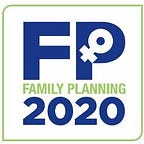High Impact Success Story: How Burundi Has Used HIPs To Reach More Women
By Laura Raney, Family Planning HIPS Advisor
The Burundian Association for Family Welfare (Association Burundaise pour le Bien-Etre Familial or ABUBEF), knows the importance of reaching the hardest to reach. The nonprofit, which is an International Planned Parenthood Federation (IPPF) affiliate and a Family Planning 2020 (FP2020) civil society focal point, was launched in 1991 with a relatively straightforward agenda: to promote family planning in Burundi. Now it operates across a broad range of sexual and reproductive health and rights (SRHR) needs, including prevention and management of HIV and AIDS, youth-friendly counseling and education, pre-marital counselling, and antenatal and post-natal care. An estimated 80% of ABUBEF’s clientele are poor, marginalized, socially excluded and/or underserved, which means the organization has had to get creative with their public health outreach.
ABUBEF runs 18 stationary and mobile clinics, along with community outreach programs. ABUBEF’s mobile outreach services are implemented in collaboration with local public health authorities, thereby strengthening the existing health system and strategically deploying local capacity to underserved areas when needed.
Through its mobile and static clinics, ABUBEF works together with the Ministry of Health to meet national health goals. The organization’s mobile outreach providers work with more than 1,000 community health workers and local clinics for family planning counseling, referrals, and community mobilization. This practice — using mobile outreach service delivery to provide a wider range of contraceptives, including long-acting reversible contraceptives and permanent methods — is a High Impact Practice. High Impact Practices (HIPs) are a set of evidence-based family planning practices with demonstrated impact on contraceptive use and proven relevance in various contexts.
Mobile outreach services reach communities with limited access to clinical providers and supplies. Populations in rural areas, urban slums, and marginalized communities experience either geographic or economic barriers to qualified health workers, which contribute to large inequities in health outcomes and use of health services. Mobile outreach services reach new and underserved populations by bringing health services closer to the client. Clients who use mobile outreach services are likely to be new to family planning, so mobile clinics are a great way to previously underserved communities.
Mobile outreach services can also help expand method choice by supplementing widely available methods in traditional health centers. Specifically, mobile outreach services enable access to long-acting reversible contraceptives (LARCs) and permanent methods (PMs), which are less accessible in many health systems in lower-income countries. Mobile outreach also supports capacity building for providers to deliver LARCs and PMs: Regular visits by mobile outreach service providers to under-resourced health facilities offer opportunities for on-the-job training and reinforcement of clinical and counseling skills, infection prevention measures, and management of client flow.
Learn more about mobile outreach services, as well as other family planning high impact practices, on the HIPs website.
